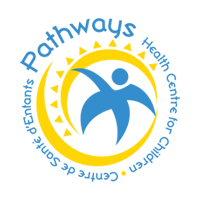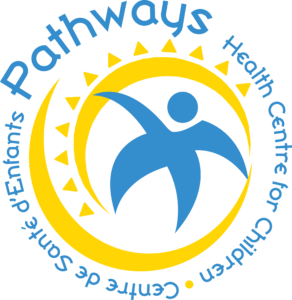What is Social Work
Being a person with special needs or being a part of a family with a person with special needs, brings with it opportunities and challenges. Receiving support from the Pathways’ Social Worker can help the child and their family in many different ways. The Social Worker offers counselling and emotional support for the child and their family. The Social Worker can also put you in touch with community resources such as:
- Specialized Counselling
- Financial Aid
- Respite Services
- Child Care
- Referrals to other agencies
Please note that the Social Work service is a voluntary service.
Who are We and Who we Serve
Social Workers are registered with the Ontario College of Social Workers and Social Service Workers (OCSWSSW). The College sets requirements to enter the profession, establishes and enforces standards of practice, and assures the quality of practice of the profession and the continuing competence of social workers and social service workers. Social Workers are accountable for practicing in accordance with the standards of social work practice and professional behaviour set by the College.
- Must already be a client of Pathways to access this service
What to expect
- Advocacy with other community service providers (schools, medical practitioners, other Pathways clinicians)
- Support with completing financial funding forms
- One to one and family support as needed
Available Services
- One to one counseling sessions with guardians and/ or children
- Teen Transition groups- age restrictions in place
- Crisis management and coping strategies
- Funding support:
Assistance for Children with Severe Disabilities (ACSD)
If you are a parent caring for a child with a severe disability, you may be able to receive financial support through the Assistance for Children with Severe Disabilities Program. This program provides financial support for low- to moderate-income families to cover some of the extra costs of caring for a child who has a severe disability. A parent or a legal guardian can apply for this funding if their child is under 18 years of age, lives at home, and has a severe disability.
Depending on the income and size of the family, the program may provide between $25 and $500 a month to help with costs, such as:
- Travel to doctors’ appointments, hospitals and other appointments related to the child’s disability
- Special shoes and clothes
- Parental relief such as respite
- Wheelchairs and other assistive devices, including repairs
- Hearing aids and batteries
- Prescription drugs
- Dental and vision care, including eyeglasses
Easter Seals Incontinence Supplies Grant
The Incontinence Supplies Grant is an annual grant, made in two payments, provided to families to offset some of the costs for diapers and certain supplies for incontinence.
The Incontinence Supplies Program is for children and youth who:
- Are residents of Ontario between the ages of 3 to 18 years
- Have a valid Ontario Health Card
- Have a chronic disability (physical or developmental) that results in irreversible incontinence or retention problems, that is lasting longer than six months and require the use of incontinence supplies
Incontinence means loss of bladder or bowel control.
Incontinence supplies include diapers, pull ups, attends, swimmers and catheters including straight, Foley and drainage bags.
The grant does not cover gloves, wipes, creams, clothing, bed linens, laundry detergent.
Easter Seals Access 2 Card
The Access 2 Card program helps to ensure that entertainment, cultural and recreational opportunities are more available and accessible to all. The Access 2 card is for people of all ages and types of permanent disabilities who require the assistance of a support person at hundreds of participating entertainment, cultural and recreational venues across Canada.
A support person is an adult who accompanies a person with a permanent disability to assist with services that are not provided by the employees at the participating venue, such as assistance with eating, administering medication, communication and use of the facilities.
There is a fee to apply for this program. A three-year card is $20.00, and a 5-year card is $30.00.
Disability Tax Credit (DTC)
The disability tax credit (DTC) is a non-refundable tax credit that helps persons with disabilities or their supporting persons reduce the amount of income tax they may have to pay. An individual may claim the disability amount once they are eligible for the DTC. This amount includes a supplement for persons under 18 years of age at the end of the year.
The purpose of the DTC is to provide for greater tax equity by allowing some relief for disability costs, since these are unavoidable additional expenses that other taxpayers don’t have to face.
Being eligible for the DTC can open the door to other federal, provincial, or territorial programs such as the registered disability savings plan, the working income tax benefit, and the child disability benefit.
Special Services at Home (SSAH)
The Special Services at Home program helps families who are caring for a child with a developmental and/or physical disability. The program helps families pay for special services in or outside the family home as long as the child is not receiving support from a residential program. The amount of funding a family receives depends on:
- The type and amount of service the child needs
- What other help is available in the community
- What kind of support the family is already receiving.
Eligibility
Families can apply for this support if their children have a developmental and/or physical disability:
- live in Ontario; and,
- need more support than most families can provide; and
- are living at home with their family, or
- if they are not living at home with their family and are not being helped by other residential services
Family Counselling Centre completes these funding applications and can be reached at 519-336-0120.
Assessment
- Families can speak with the Social worker and make individualized plans for continued services; service is voluntary
Intervention
- One to one support for families after receiving a new diagnosis
- Assistance in completing financial funding forms
- Brief counseling sessions to help learn coping strategies to deal with intrusive or negative thoughts
- Advocating supports with other community service providers
Basic Needs Support
Mental Health and Counselling
Counselling Agencies:
If family physicians are linked with Rapids Family Health Team or Central Lambton Family Health Team, you have access to these programs:
Relationships – Safety and Security
- Women’s Interval Home
- Sexual Assault Survivor Centre
- Domestic violence at Bluewater Health
- Additional resources through Bluewater Health
- Signal for Help
- Community Legal Assistance Sarnia (C.L.A.S.)
- Family Counselling Centre’s Violence Against Women Program: 519-336-0120 and ask for this program during the intake process
- Lambton Ontario Provincial Police: 519-882-1011 (General Inquiries) or 9-1-1 (Emergency)
- Sarnia Police Service: 519-344-8861 (General Inquiries) or 9-1-1 (Emergency)
UNDER CONSTRUCTION
We are working hard to complete this section. Please come back and check later.
How To Refer:


